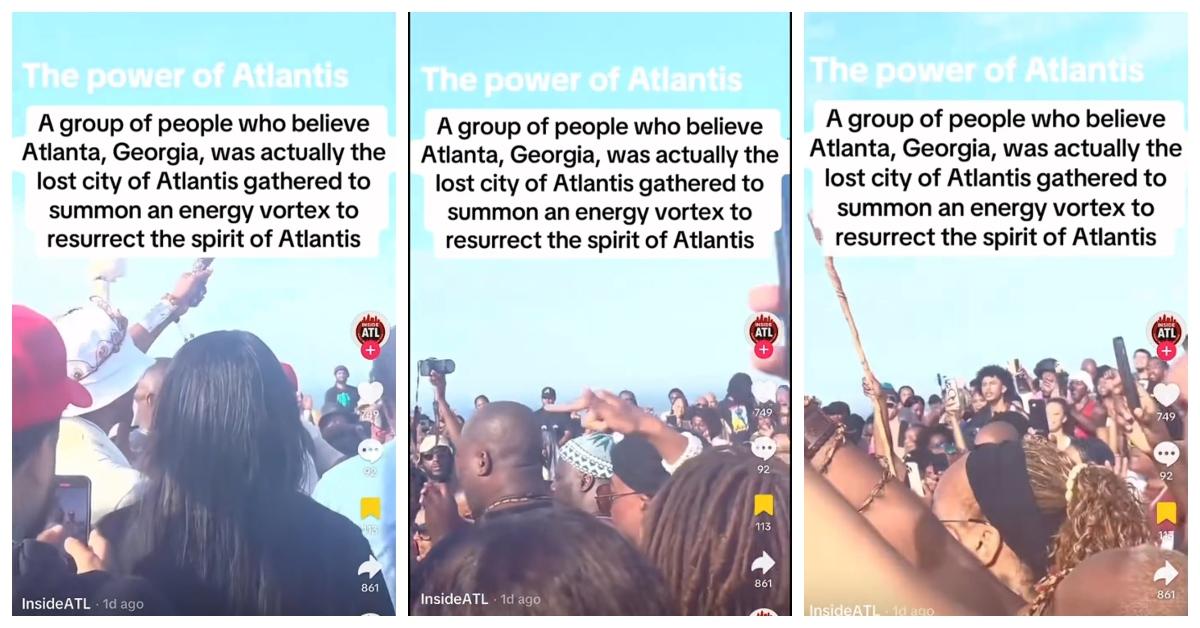"Atlanta Is Atlantis" Movement Claims Landlocked Georgian City Is Lost City in Disguise
They're summoning an energy vortex to restore the spirit of Atlantis in the heart of Atlanta.
Published Sept. 2 2025, 5:54 p.m. ET
When you think of the Lost City of Atlantis, most people picture the ruins of a once-great civilization lying at the bottom of the ocean somewhere, occupied now by fish, kelp, and memories. Whether or not Atlantis actually existed is a source of much scholarly debate, and the mythology has taken on a life of its own through the millennia.
But a new movement based in Atlanta, Georgia, is bringing the myth to a new locale.
The movement, known as the "Atlanta is Atlantis" movement, has drawn interest and criticism alike from people who are curious as to what the people who promote it actually believe. Here's what we know about the movement.
What is the "Atlanta is Atlantis" movement?
Atlantis was supposedly a grand and advanced city, which Britannica claims was atop a legendary island in the Atlantic Ocean, lying west of the Strait of Gibraltar. The pearl of contemporary architecture, art, and technology, the city supposedly sank into the ocean due to a series of earthquakes. But a new theory, "Atlanta is Atlantis," suggests that the spirit of the city is actually still around, and it happens to sit atop landlocked Atlanta.
The movement, started by a group called Black Atlanteans, starts with the mission statement, "History has been rewritten. The truth has been buried. But now, it’s time to reclaim what’s ours." Helmed by a number of Black Americans who say they are searching for the truth, the movement purports to reveal the fact that Atlanta is actually secretly the lost city of Atlantis, and its residents have lost touch with their ancient destiny.
A video circulated widely on social media shows a large group of people gathered in Atlanta, chanting, "Atlanta is Atlantis," and they claim they are working to summon an energy vortex they believe will restore Atlantis to its rightful spot atop Atlanta's modern streets.
People are understandably skeptical.
Unsurprisingly, people are a little skeptical about the group's claims. Some have pointed out that the group, which claims to have discovered the true destiny of displaced Black Americans, is doing what other groups have done before them, wildly grabbing at important identities throughout history to find connection to a past they lost when their ancestors were brought over from Africa as slaves.
Other iterations of the movement have claimed that these displaced Black Americans were once Jewish people, Egyptians, and more.
In one comment section, a TikTok user noted, "Atlanta is landlocked." While another questioned, "How does one get to this level of delusion?"
One user questioned, "Literally what’s wrong with just being of African descent?"
But of course, the issues behind the movement go far deeper than a group that feels displaced longing for a connection to their roots. In some ways, the movement is tied deeply with the marginalization and ostracizing of Black Americans through systemic racism and oppression.
While, at its surface, the movement seems laughable, there are layers to it that deserve understanding. For instance, a group that feels tied to their identity doesn't feel the need to look for an identity. And since Black Americans had their historic identities stripped away by generations of slavery, the movement itself is an expression of the healing from that painful separation.
While Atlanta may not, in fact, be Atlantis, the fact that the movement exists is a heartbreaking reminder that there are generations of people who struggle to locate their ancestral roots, and it's due to the dark history of a country that they call home.


